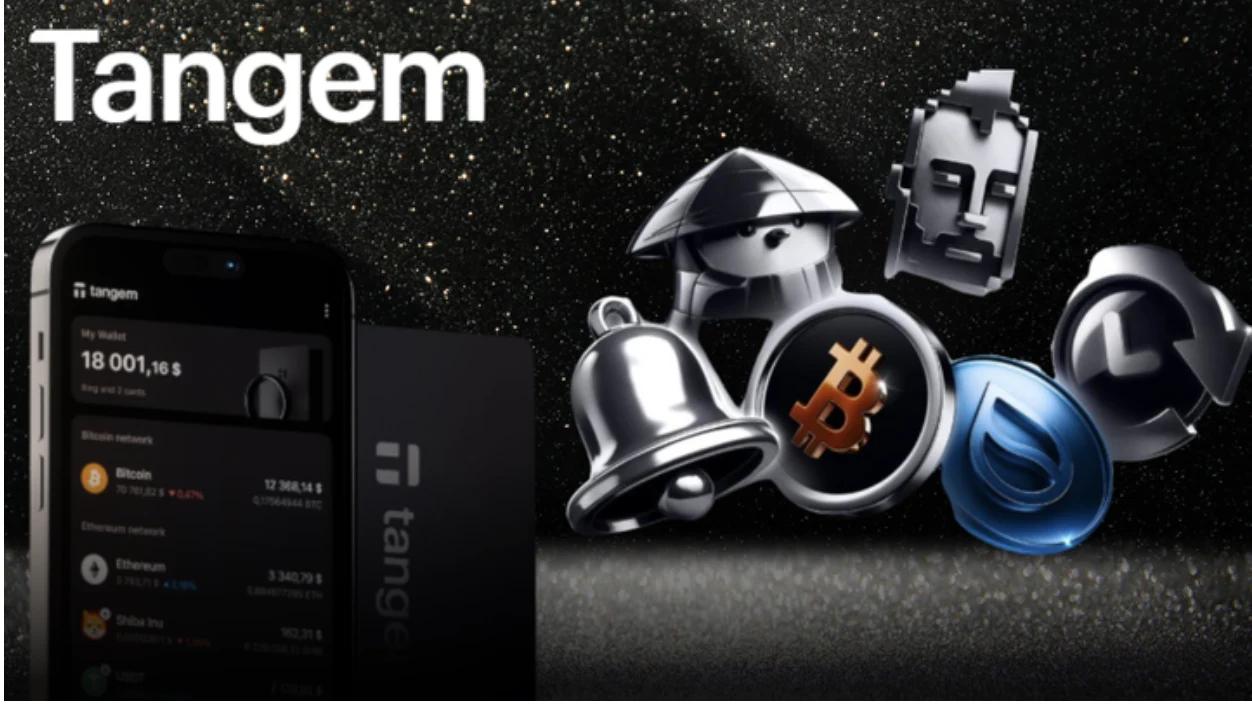Tangem Outlines Vision for Privacy-Preserving On-Chain Identity in Web3 and DeFi
Tangem unveils its vision for privacy-preserving on-chain identity in Web3 and DeFi, leveraging zero-knowledge proofs, DIDs, and SBTs to enhance trust, security, and user-controlled digital identities.

Swiss-based hardware wallet maker Tangem has shared new insights into its plans for advancing privacy-preserving on-chain identity frameworks in the Web3 space.
The initiative explores how emerging technologies such as zero-knowledge proofs (ZKPs), Decentralized Identifiers (DIDs), Soulbound Tokens (SBTs), and reputation models could help define trust and access in decentralized finance (DeFi).
Zero-Knowledge Proofs (ZKPs)
ZKPs make it possible to confirm a fact without revealing the underlying data — for instance, verifying that a user meets an age or credit requirement without sharing personal records.
In DeFi, this enables compliance and risk assessment while protecting user privacy.
Decentralized Identifiers (DIDs)
DIDs serve as user-controlled digital identities that do not depend on centralized providers like Google or Facebook.
Linked directly to blockchain wallets, they let individuals manage their own identifiers while preventing third-party interference or revocation.
Soulbound Tokens (SBTs)
Based on Vitalik Buterin’s proposal, SBTs are non-transferable tokens associated with a wallet that can represent skills, achievements, or reputation.
Within DeFi, they may signal repayment reliability or DAO participation without exposing sensitive information.
Reputation Systems in DeFi
Reputation offers measurable value to on-chain identity.
Just as traditional finance uses credit scores, decentralized systems can reference verified wallet behavior to reduce sybil attacks and improve governance fairness.
Real-World Applications
DeFi Lending and Credit Scoring
Privacy-preserving identity can support under-collateralized lending by allowing users to demonstrate reliability through cryptographic proofs rather than asset size.
DAO Governance
Reputation-linked credentials can strengthen decentralized governance by giving long-term contributors proportionally greater influence.
NFTs and the Metaverse
Portable on-chain credentials let users carry verified reputation and achievements across digital ecosystems.
Cross-Platform Identity
A shared trust framework across DeFi, DAOs, NFTs, and social networks could simplify onboarding and improve safety for new participants.
Challenges and Next Steps
Despite rapid progress, decentralized identity still faces open questions:
– Balancing privacy with usability for non-technical users
– Clarifying regulatory treatment across jurisdictions
– Preventing concentration of power among a few identity providers
– Ensuring that cryptographic tools remain robust and verifiable
Tangem emphasizes that successful adoption will depend on solutions that stay interoperable, user-controlled, and privacy-centric.
Tangem’s Role in the Evolving Identity Landscape
The company’s NFC-based hardware wallets are designed to secure private keys for both digital assets and identity credentials.
This model aligns with ongoing experiments by projects such as Worldcoin, Polygon ID, Civic, and Lens Protocol, all seeking scalable standards for Web3 identity.
About Tangem
Tangem AG is a technology company headquartered in Zug, Switzerland, focused on secure, card-based hardware wallets that simplify self-custody for cryptocurrencies, NFTs, and decentralized identity. Its contactless NFC design allows users to manage assets and credentials with a single tap.
Follow us on Google News
Get the latest crypto insights and updates.
Related Posts

How Do You Make Money with Bitcoin? 7 Common Methods in 2026
Coinfomania News Room
Author

Digital Asset Treasury Management Moves Toward Structured Models
Coinfomania News Room
Author

Must-Read for Investors: Bitcoin Weakens, XRP Strengthens – Why XRPStaking is Becoming a New Choice for Global Users
Coinfomania News Room
Author